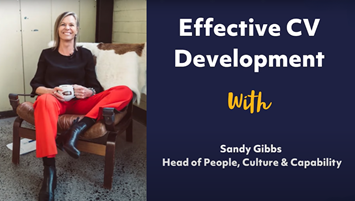Tribe's Head of Digital, Data & Technology, Sarah White, talks us through dealing with rejection.
We’ve all thought a job we’ve applied for seemed perfect and then been disappointed to hear the decision had gone another candidate's way. You have every right to feel despondent but it is how we deal with it that can create the best learning opportunities to move forward with your next application.
Rejection comes at two stages of the job searching process and learnings can differ as a result. These stages are at the application stage and then also during the interview stage.
At application stage:
Technology makes advertisements easy to apply to (and also easy to be rejected from).
Things to consider when applying
● Did you meet the brief? Candidates typically apply to roles based on title but choose not to
read the full advertisement. By not understanding the brief, it is difficult to know if the role
is quite right. If the ad doesn’t give you the right context to decide for yourself, consultants
are always happy to help decide with you by understanding your background and
motivations on the phone.
● Could you answer yes to 75% of the key requirements? Whilst not a scientific measure, by
being able to answer yes to approximately this sort of measure will help decide if you have
enough scope to grow in the role as well as be challenged. If you answer yes to 100% the
role may be too junior and too senior 50% and below…
During the Interview stage:
● Did you prep for your interview well? Did you research the interviewees, take advantage or
ask for interview prep (from the consultants who have met the client and taken the brief)
and have you thought of questions that make you stand out from the crowd?
If yes…
● Ensure you receive relevant feedback on how you presented at interview. A lot of
candidates present differently at interview as to what they thought they did (he came across
as aggressive and defensive, she spoke about her current employer really negatively, he
seem uninterested as didn’t ask any questions…). Whilst potentially hurtful to hear, truly
listening to the interview feedback might uncover the “pearl of wisdom” you need in order
to improve for next time.
There are many reasons for a future employer to say no to, but only a select few to say yes to. It
is important to take each learning as a self-improvement
Handling job rejection can be a valuable learning experience, helping you refine your approach in future applications and interviews. Rejection typically happens at two stages: the job application stage and the interview stage, each providing unique lessons. During the application phase, it’s essential to carefully review whether you fully understood the job brief and if the role suits your skills. Often, candidates apply based on the title alone, without closely reading the requirements. Checking if you meet around 75% of the qualifications can help you gauge if the position offers the right level of challenge and growth. When job descriptions lack clarity, consulting with recruitment advisors can provide the insights needed for a more informed decision.
At the interview stage, effective preparation makes a significant difference. Preparing for job interviews includes researching your interviewers, discussing potential questions with recruiters, and developing questions that will help you stand out. After the interview, specific feedback can be invaluable. Though it can sometimes be hard to hear, feedback may reveal areas for improvement—such as tone, engagement, or the types of questions asked—that could make all the difference in your next application. By reflecting on these experiences, you can transform rejection into an opportunity for growth, equipping yourself with practical job application tips and strategies to handle job rejection in the future.





